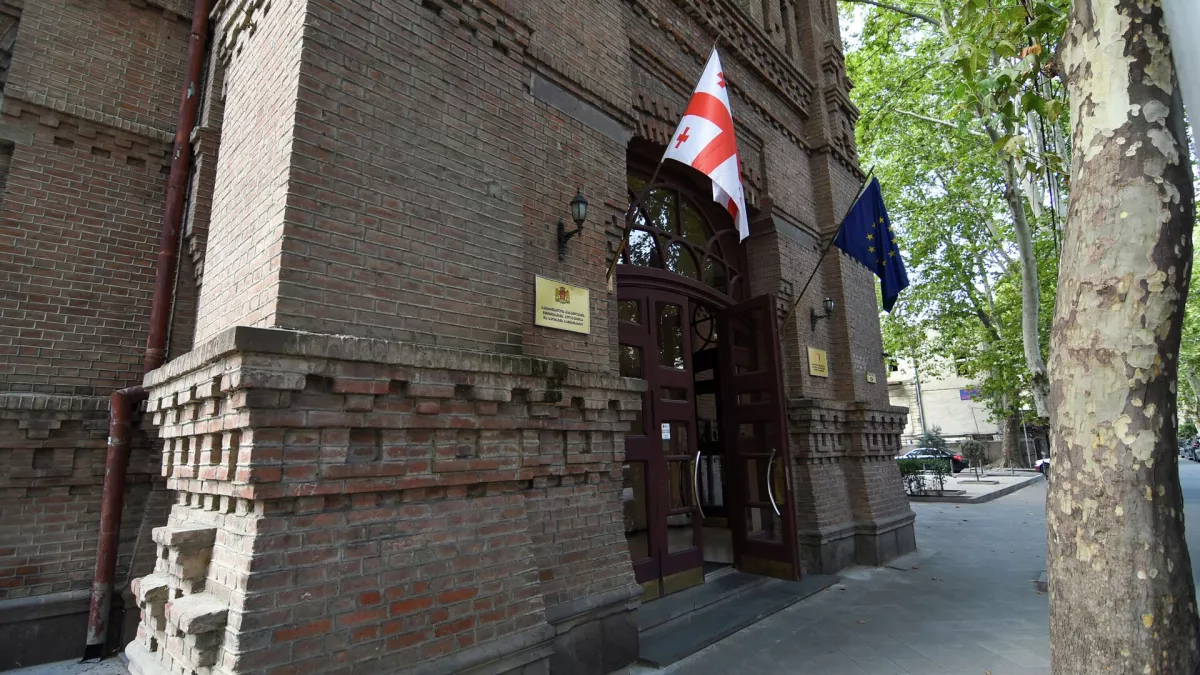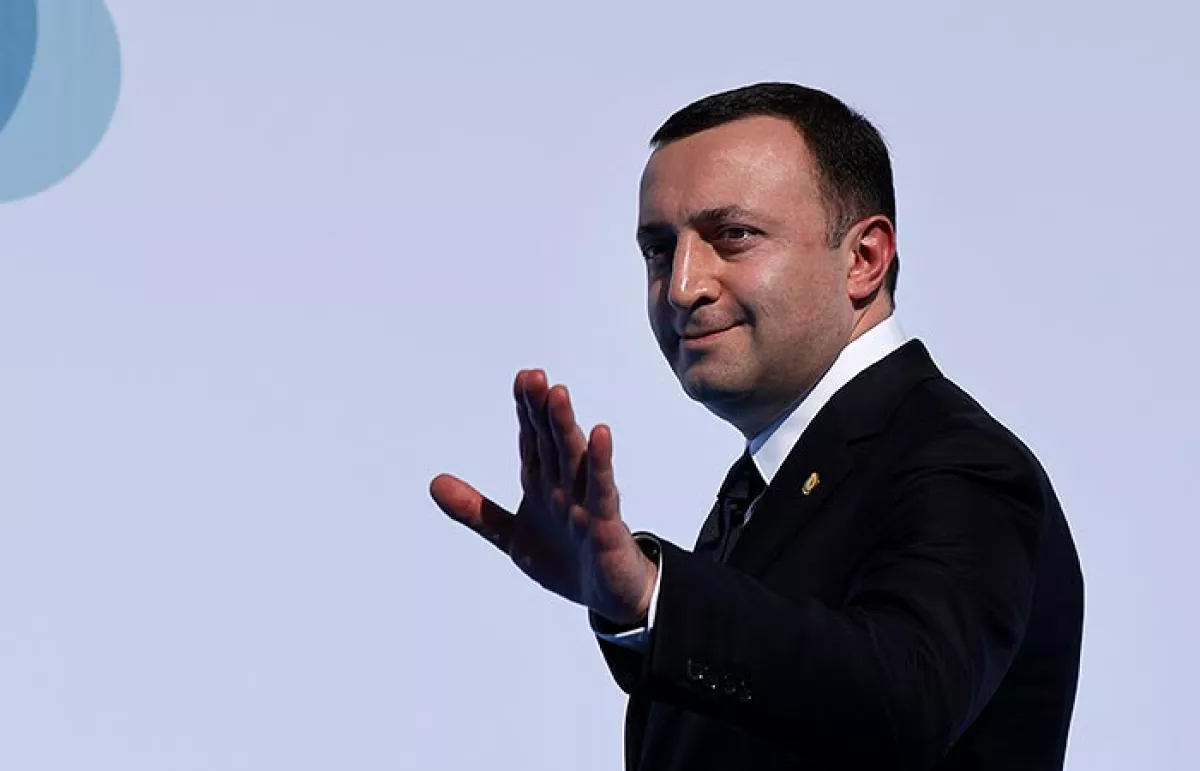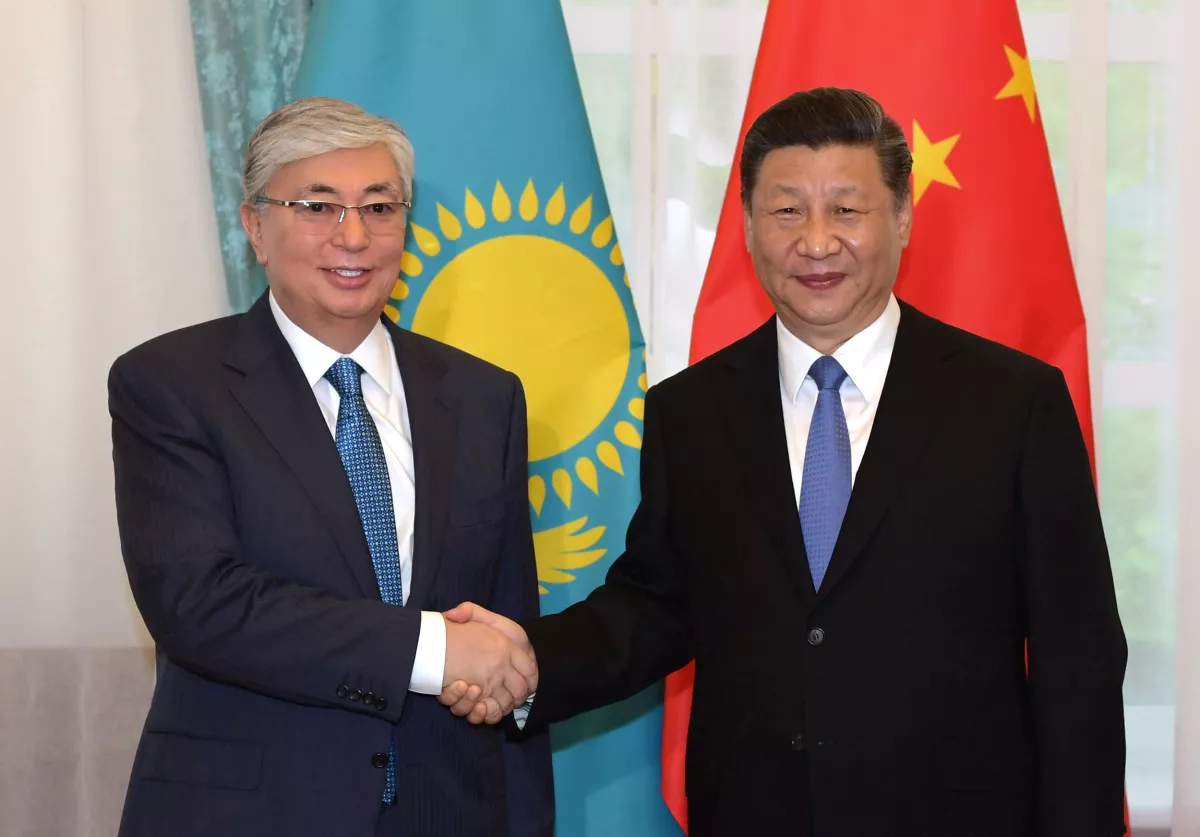Georgia, Middle Corridor, and language of future Chinese enters school curriculum
Every year on April 20, the United Nations marks the International Chinese Language Day, a day that underscores the growing importance of the language worldwide. This year, just before this date, it was announced that the Chinese language would be introduced into the school curriculum in Georgia.
This is quite logical, considering the increasing global demand for the Chinese language, with individuals proficient in it enjoying significant advantages when seeking employment in nearly all countries.
The Chinese language is especially in demand in those countries that are integral to large-scale projects related to new trade routes connecting China with other parts of the world. Georgia, along with other countries in the South Caucasus and Central Asia, through which the Middle Corridor passes, is at the forefront of spreading Chinese linguistic and cultural influence.

"Our goal is to offer students a diverse range of options and, while deepening their knowledge of the state language, to foster the development of communication skills in at least two foreign languages," stated the Ministry of Education of Georgia.
The Ministry also reminds that schools are required to offer students at least two foreign languages to choose from. "According to the national curriculum, the first foreign language, which is mandatory for all students and is taught from grades 1 to 12, is English. The second foreign language is introduced from grade 5 and can be any language chosen by the student/parent at their discretion. Schools are required to offer at least two foreign languages as options.
Currently, students can choose from French, German, Italian, Turkish, and other languages. In the case of choosing any language, the Ministry commits to ensuring appropriate preparation—approving curricula, developing textbooks, training teachers, and organising the educational process according to standards. At present, Chinese is taught as an elective in 15 schools.
Given the growing demand for learning the language, work will begin in collaboration with the Department of Sinology at Tbilisi State University to create the corresponding standard," stated the Ministry of Education of Georgia.
The Ministry’s statement regarding the teaching of Chinese as a second foreign language in schools has been met with understanding from Georgian society. Even the pro-Western opposition, which had previously sharply criticised the government for its strategic cooperation with China (allegedly undermining the country's "European choice"), has shown less criticism regarding the introduction of Chinese into the school curriculum. However, some of its representatives have expressed "concerns" that the inclusion of Chinese in the educational process reflects the Georgian government's desire to more actively develop relations with China amid the crisis in relations with the West.
Parents of Georgian students are beginning to realise that with knowledge of Chinese, their children will have far more attractive employment prospects than with knowledge of English or, even more so, French.

In the summer of 2023, Irakli Garibashvili, who was then serving as Prime Minister, announced that Chinese language lessons would begin in primary and secondary schools in Georgia. At the same time, Tbilisi and Beijing declared the establishment of a strategic partnership between the two countries. This sparked sharp criticism from both Georgia's Western partners and the pro-Western opposition.
Throughout the past year and the beginning of the current one, amid the opposition's attempts to seize power through unconstitutional means, using a "Maidan" under the pretext of the ruling Georgian Dream allegedly abandoning European integration, the government refrained from raising the issue of teaching Chinese in schools.
On the one hand, the government thus avoided giving the opposition unnecessary reasons to add "anti-Chinese" protests to the already existing "anti-Russian" ones. On the other hand, the authorities essentially "missed the opportunity." The Chinese language is quite complex, and it is impossible to learn it "quickly."
Students who begin learning the language in the 5th grade will only reach a basic level by the time they graduate, which will then need to be further developed at the university level. As a result, Georgia will only produce qualified Chinese language specialists in 7–10 years, yet such experts are needed today.
The number of Chinese professionals, businessmen, and tourists in Georgia is increasing, while the number of citizens capable of communicating with them in Chinese remains critically low. The demand for young specialists proficient in Chinese is growing much faster than the Georgian education system can train the necessary personnel.
Georgia is not alone in this process. Both Russia and nearly all post-Soviet countries that focus on investment and trade cooperation with China—especially those located along the Middle Corridor—are actively incorporating Chinese into their educational programs.

In Russia, the Chinese language was included in the Unified State Exam (EGE) programme as early as 2019, which contributed to its growing popularity among schoolchildren. Moscow now has over a hundred schools teaching Chinese, and experts believe their number will continue to rise. It can be said that Georgia is "critically lagging" behind in introducing Chinese language education in schools.
To assess the real demand for specialists proficient in Chinese in Georgia, it is enough to compare the situation with Uzbekistan. Like Georgia, Uzbekistan is situated along the Middle Corridor, where large-scale infrastructure projects involving China are already underway, including the construction of the Uzbekistan-Kyrgyzstan-China railway.
Chinese investments in the economy and trade turnover with China are increasing. As a result, Uzbekistan's labour market is facing an acute shortage of specialists proficient in Chinese. This is particularly striking for a country with abundant labour resources, a significant portion of which migrates to Russia for work.
However, a citizen of Uzbekistan who speaks Chinese fluently can easily find a high-paying job at home. Last year, experts analysed data from the Uzbek job search platform hh.uz and found that for every vacancy requiring knowledge of Chinese, there were only 0.6 résumés submitted. A ratio below 1.9 indicates a severe shortage of candidates, and a figure of 0.6 means that Chinese-speaking specialists are practically "snapped up."
Even a year ago, the demand for such professionals significantly outstripped supply—and the situation has only worsened since then. Uzbekistan continues to strengthen its ties with China within the framework of the Belt and Road Initiative, which only further fuels the demand for Chinese language specialists.

Growing attention to Chinese language education is also evident in Kazakhstan, where relations with China are steadily advancing. In the summer of last year, Kazakh President Kassym-Jomart Tokayev and Chinese President Xi Jinping signed an agreement on cooperation in Chinese language education during a Shanghai Cooperation Organisation (SCO) summit. Today, five Confucius Institutes operate across Kazakhstan. The government plans to establish Chinese language departments at leading universities and introduce it as a second foreign language in schools.
As part of celebrations for International Chinese Language Day, a large cultural event was held on April 19 in Almaty’s Central Park. On April 20, an international seminar dedicated to the Chinese language took place in Astana. These events highlighted the growing interest in Chinese language and culture.
Currently, around 4,000 Kazakh students are studying in China, while more than 1,000 Chinese students are enrolled in Kazakh institutions. A branch of Beijing Language and Culture University operates in Astana and is set to train 30 Chinese language teachers and 50 students majoring in translation this year.
It is likely that similar close cooperation between Georgia and China will also evolve in the field of Chinese language education.
Vladimir Tskhvediani, Georgia, exclusively for Caliber.Az








